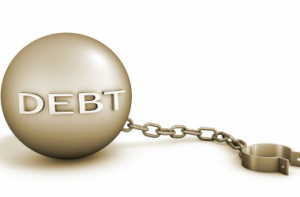 Today’s top story: How to save for college without sacrificing retirement. Also in the news: Recovering from a poor credit history, 3 ways to pay off a debt in collections, and the best savings strategies for your personality type.
Today’s top story: How to save for college without sacrificing retirement. Also in the news: Recovering from a poor credit history, 3 ways to pay off a debt in collections, and the best savings strategies for your personality type.
How to Save for College Without Sacrificing Retirement
It’s possible to do both.
Poor Credit History? There Are Ways to Recover
Making a comeback.
3 Ways to Pay Off a Debt in Collections
Getting debt collectors off your back.
Here Are the Best Savings Strategies for Your Personality Type
Are you the gambling type? Or a goal-setter?
 Today’s top story: How to tame your student loans. Also in the news: Why you shouldn’t skimp on insurance, critical personal finance tips for your first years after college, and three bills to pay off before you retire.
Today’s top story: How to tame your student loans. Also in the news: Why you shouldn’t skimp on insurance, critical personal finance tips for your first years after college, and three bills to pay off before you retire. Today’s top story: How to handle “expired” debt. Also in the news: Ways to avoid a disclosure catastrophe after closing on your new home, why your small business should have its own credit score, and why you should skip the extended warranty and save the money instead.
Today’s top story: How to handle “expired” debt. Also in the news: Ways to avoid a disclosure catastrophe after closing on your new home, why your small business should have its own credit score, and why you should skip the extended warranty and save the money instead. Today’s top story: How to decide if you need travel insurance. Also in the news: Steps to take if you didn’t get enough financial aid, why not being in debt is better than having awesome credit, and 4 things you should know about health savings accounts.
Today’s top story: How to decide if you need travel insurance. Also in the news: Steps to take if you didn’t get enough financial aid, why not being in debt is better than having awesome credit, and 4 things you should know about health savings accounts.  Today’s top story: Mapping your financial journey. Also in the news: What Wells Fargo’s settlement might mean for you, six unusual ways to get out of debt, and surprising Social Security benefits for divorced spouses.
Today’s top story: Mapping your financial journey. Also in the news: What Wells Fargo’s settlement might mean for you, six unusual ways to get out of debt, and surprising Social Security benefits for divorced spouses. Today’s top story: Mortgage application forms will look different next year. Also in the news: 5 times you shouldn’t use a credit card, why you should say no to 72-84 month auto loans, and why you need to stop being delusional about debt.
Today’s top story: Mortgage application forms will look different next year. Also in the news: 5 times you shouldn’t use a credit card, why you should say no to 72-84 month auto loans, and why you need to stop being delusional about debt.